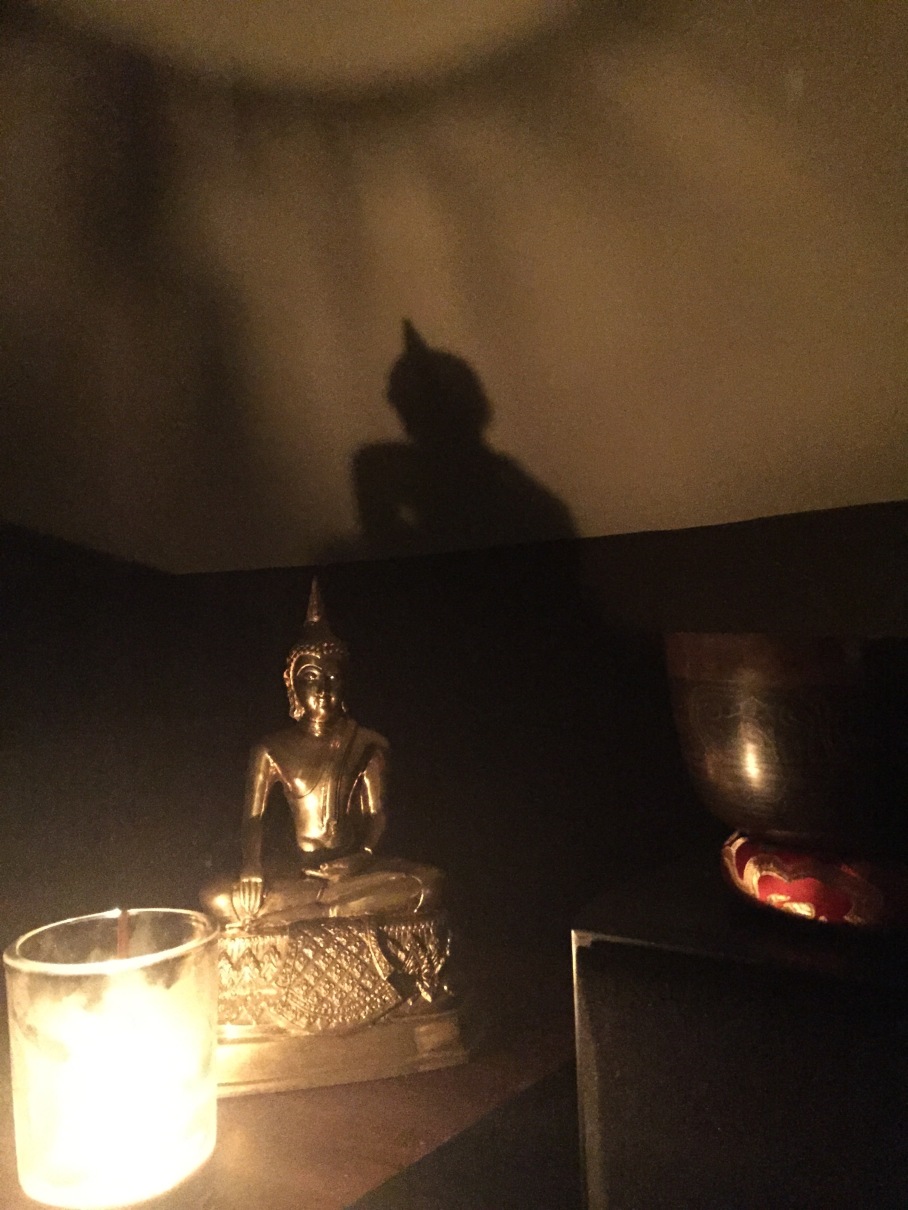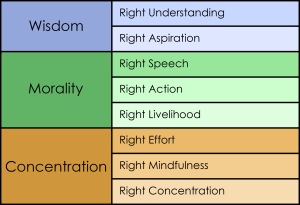My meditation teacher’s own teacher, Ruth, died recently. In our last class, he spent a fair amount of time talking about it, which is exactly what made me apprehensive about attending. “This will be fun. He’ll weep. We’ll all have to sit there watching the weeping. My mind will inevitably wander to something inappropriate. I’ll feel guilty that I don’t take death seriously enough…”
The truth is that we’re all going to die, though. We each have equal claim to thinking whatever we like about that experience. When I think about how offended people get about death in all its forms, I wonder if I’m missing something. I mean, it’s coming. For all of us. For sure. So, really, why worry about it?
Don’t get me wrong. I don’t want to die. I have kids who I’d like to see grow up and maybe have kids of their own. But one of us is going to die before the others. If I go first, I’ll be missing their graduation or marriage or kids or sweep of the Oscars. I only hope that whoever goes first doesn’t suffer (in both the pain and dukkha senses) too much on the way out. I only know for sure that I’ll suffer more if I spend any time dwelling on how unfair or poorly timed it was. Or worrying about it now.
Anyway, in class, the surprise for me was that we didn’t watch him weep. He smiled. He even laughed a little while muttering “it’s so weird.” Ruth lived, created some nice (and probably not so nice) karma, and then passed away. Not sad. Simple. Amazing. Miraculous, really.
We talked about the fact that, at least in adulthood, we go to sleep with a certain amount of joy and relief and have no guarantee that we’ll wake up. What’s the difference? When we go to sleep, we cease to be for all practical purposes. Why doesn’t that terrify us? Just because we’re pretty sure we’re going to wake up to live another day?
What if death could be accepted like sleep. I think it can, but it requires that we work hard to live in a way that doesn’t leave us lying in our deathbed saying “dammit, I wanted to go to Burma! This sucks!” How do we get there? Let go of trying to become someone else or waiting to do that thing that will make you happy and complete. Don’t hold your breath. You’ll turn purple.
Before I was born, there was nothing where I currently exist. I don’t think anyone cared much. My grandfather’s uncle’s dad was somebody who’s dead now. Things seem to be OK. In fact, most of the people who ever lived are dead, and yet we all carry on living without giving too many of them a second thought. Yet, we seem to feel guilty if we don’t really make a show of suffering about it when it inevitably happens.
I think all the terror around death comes from two things: the fear of the dying itself, and the fear of losing our “selves”. In reality, we fear all the situations that typically lead to death. Fair enough. I don’t want to be on fire, drown, suffocate, or whatever, either. Sounds unpleasant to try to meditate through– but it can be done.
Among the more extreme cases of mind control is the self-immolation of the Vietnamese Buddhist monk Thich Quang Duc in 1963 to protest the repressive regime in South Vietnam. What was so singular about this event, captured in haunting photographs that are among the most readily recognized images of the 20th century, was the calm and deliberate nature of his heroic act. While burning to death, Duc remained throughout in the meditative lotus position. He never moved a muscle or uttered a sound, as the flames consumed him and his corpse finally toppled over.
— Scientific American
But the losing our “selves” part is odd. If we didn’t exist before we were born, we’re not really a persistent “thing” to be lost. We’re experiences. I’m the aggregation of my senses, thoughts, and actions. When those cease to function, there’s really nothing left to lose. There isn’t going to be a Rian floating somewhere saying “Well, that was bullshit. Now I can’t have chocolate. Great.”
We come into being, live for a while if we’re lucky, and then go out. Like a candle. What’s amazing is that we live at all. The miraculous nature of finding ourselves experiencing any amount of conscious life and love on this rock in this solar system in this galaxy… is pretty spectacular. Ruth managed to leave behind some people spreading the word about the dharma and, as a result, helping many people live better lives. I’d call that a win.
Love people. They come; they go. That is How It Is.

How about the Mantis Shrimp? I mean, c’mon.



 A decade or so ago, I was running a business with a dozen employees, big name clients, and revenues in the millions of dollars. I spoke at conferences about entrepreneurship and cross-cultural communication, had an awesome social life, and was starting a new family. The future was so bright… well… you know.
A decade or so ago, I was running a business with a dozen employees, big name clients, and revenues in the millions of dollars. I spoke at conferences about entrepreneurship and cross-cultural communication, had an awesome social life, and was starting a new family. The future was so bright… well… you know.